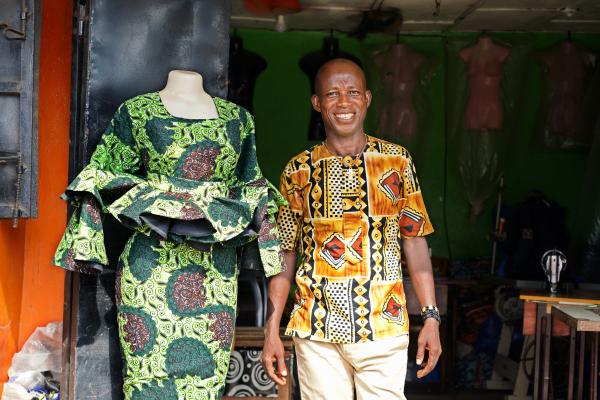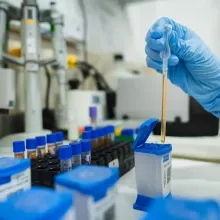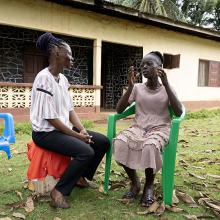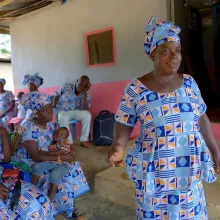Bobby Togar, a 45-year-old man, initially thought he had caught a common cold, but as time progressed, his family assumed it was an African sign. Later, he would learn it was multi-drug resistant tuberculosis (MDR-TB). Bobby was in disbelief.
“I thought only people who smoked were at risk for TB. I didn’t realize it was an airborne disease,” he explains.
Tuberculosis (TB) is a common and often lethal infectious disease. Typically, it attacks the lungs but can also affect other body parts. After his diagnosis, Bobby was put on a six-month treatment plan; Bobby was unable to complete it. His health deteriorated to the point where friends and family began to ostracize him, leaving him isolated in a room. It wasn’t until a relative visited and suggested he go to the hospital that he sought medical help. TB spreads through the air when people with an active infection cough or sneeze.
Bobby was placed in intensive care alongside five other patients. Unfortunately, all five of the other patients died due to a power outage at the hospital. “Before they could switch the power back on, five people had already died,” he recalled.
Assuming that Bobby had also succumbed to the illness, hospital staff took him to the mortuary. The following day, when doctors came to check the bodies, they discovered that Bobby was still alive. “So they took me out of the body bag and carried me back to the ICU, where they performed medical procedures that brought me back to life,” Bobby recounted.
Bobby shares his experience of narrowly escaping death from TB in his book titled “Farewell to the Grave,” as he truly felt he had ‘seen death.’ Despite the availability of treatment in wealthier countries, tuberculosis remains the world’s deadliest infectious disease.
Partners In Health Liberia (PIH-L) is working with the Government of Liberia to tackle multidrug-resistant tuberculosis (MDR-TB) at the TB Annex Hospital in Monrovia and the James Jenkins Dossen (JJD) Hospital in Harper, Maryland County, where the first decentralized TB ward has been established.
Tuberculosis, like many infectious diseases, starkly highlights the inequities in healthcare. According to the World Health Organization, TB is the deadliest infectious disease globally, infecting 10 million people and causing 1.5 million deaths in 2018 alone. More than 95 percent of these cases and fatalities occurred in developing countries.
During his treatment, Bobby was enrolled into PIH’s social support program, which provided hot meals customized to his nutritional needs, transportation reimbursement, and assistance with housing rent when he was discharged. Bobby, a 2009 graduate of the University of Liberia, entrepreneur and professional tailor, lost all of his belongings and relationships while on treatment. He was discharged in 2019 and received a certificate in 2020. Bobby reestablished his business with PIH’s support, purchasing seven sewing machines, hiring four employees and setting up a new store front in a high traffic area.
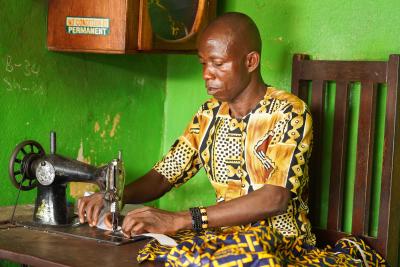
Bobby Togar works on his sewing machine in his tailoring shop in Monrovia on January 14, 2025.
Aminata K. Massalay / PIH
As CEO of a thriving small business, Bobby provides for six dependents, including himself and his new fiancée. They recently welcomed the seventh member of their family, named Testimony.
For over two decades, PIH has been fighting against inequity by treating and preventing tuberculosis (TB), including its more severe drug-resistant forms, as well as co-infections of HIV and TB. This work focuses on some of the poorest and most vulnerable communities worldwide. Through its community-based approach to care, PIH has achieved some of the highest cure rates and the lowest treatment default rates ever recorded.
